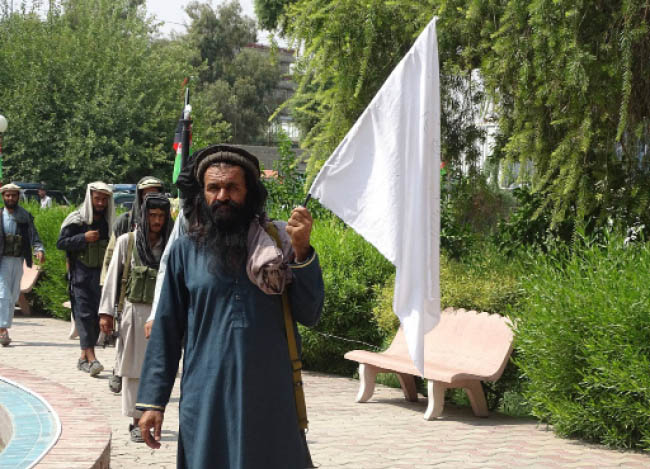Violence, hatred and killing or, that is to say, radicalism and religious violence are one of the horrific issues of the contemporary world. Regardless of the fact that radicalism is the product of political agreement at international level, it also relates to religious issue, since warring factions seek to legitimize their violent and radical practices.
It is self-explanatory that a number of seminaries, where fundamental elements rule, are the hotbed of radicalism and violence. It is the individuals from seminaries who legitimize their acts of violence and find the guts, through their radical interpretation of religion, to massacre people and destroy their symbols of modernity. There is no doubt that radical culture leads to the formation of religious fundamentalists and paves the ground for horrific episodes of attacks and suicide bombings.
This commentary will not discuss whether those interpretations are right or wrong, the issue is that the horrific and destructive acts of violence and radicalism have dismantled the individual and collective life of Muslims and non-Muslims. All social layers, mainly religious elements, will have to be determined to campaign against this issue in some ways.
Based on this concept regarding violence and radicalism, military and political action may lead to the eradication of this event. However, inter-religious solutions are believed to be dynamic and extensive that will curb this frightening issue. The eradication of this shocking challenge will lie in moderate interpretation of religious sharia based on the foundation of supporting the life of mankind and upholding the fundamental rights of human societies. It is most likely that if inter-religious solutions are not pursued for eliminating this regional and global event, military and political solutions may be fruitful in repressing this phenomenon; however, the root causes may remain active. Thus, inter-religious solution will be instrumental in putting an end to this issue.
It is believed that profound religious study besides valuing the fundamental principles of human rights such as the rights to life, liberty, property, etc. and finding out the true spirit of religious messages regardless of any kinds of tendencies will be the right solution to the persisting challenge. In other words, the human values should be pursued in primary resources of religion and these values must be institutionalized. This study needs to be done regardless of religious or sectarian classifications and viewed from new intellectual and legal system on the basis of inherent dignity and rights of mankind. Indeed, the primary sources of our religion and branches of religious human-oriented knowledge will uphold this issue.
The mechanism to be pursued in this respect is founding a strong educational center within the structure of High Peace Council (HPC) which will gain its objectives through allocating the necessary budget for achieving this goal and gathering religious experts that will break this deadlock and will act effectively for religious and global interests.
The center for profound study will end the cul-de-sac and the legitimacy which is supported via ideological, radical and violent theories of fundamental groups. This center has to be equipped with necessary elements and supported by HPC so as to come to fruition.
The second way that will be fruitful in eliminating violence and religious fundamentalism is promoting and spreading legal and human societies from religious perspective around the human societies. Since the spread of such issues is backed by strong religious logic, it will be of high significance and play a key role in ending the issue of violence and radicalism. It is believed to be very prolific if the two said solutions are put into practice to complete each other. Furthermore, the outcome of this center of religious study needs to be promoted and it will only come to fruition if the promotion of such mentalities changes into a ruling intellectual and religious discourse. Therefore, it is necessary to take the following steps:
(1) Extensive spread of human and legal values from religious perspectives in the frame of conducting seminars in provinces and the capital and sustainable promotion of these values through the media, including social media.
(2) Financing and encouraging moderate religious tendencies in promoting the values of human rights in mosques, seminaries and religious centers.
(3) Teaching religious education with the approach of human rights and inserting the content of Islamic human rights and Universal Declaration of Human Rights (UDHR) in text books both in scientific and religious centers.
Although the aforementioned solutions are in need of sufficient energy, strong budget and enough time; Afghan government has to consider these solutions besides political and military deals. Unluckily, Afghan government does not have a certain blueprint in this regard. It is crystal clear that if these solutions are disregarded, the state’s political and military campaigns will not come to fruition.
Home » Opinion » The Solutions to Religious Violence and Fundamentalism
The Solutions to Religious Violence and Fundamentalism
| Mohammad Eshaq Arifi

